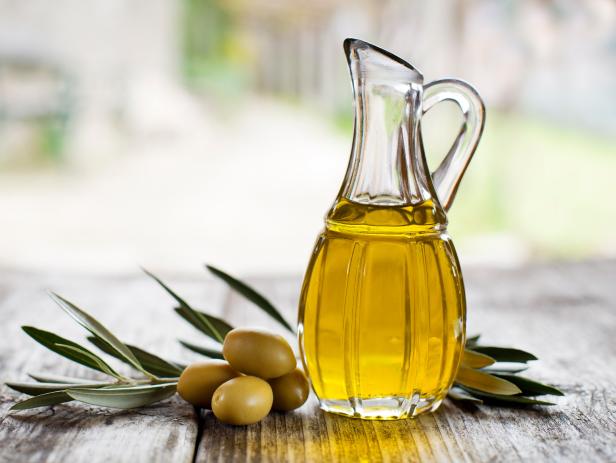posted by PHILEOS EVOO on October 31, 2022

Phileos EVOO is the real deal and a PREMIUM brand when it comes to extra virgin olive oil. One will never have to wonder whether they are truly getting EVOO if they purchase our products. What we claim is what the consumer gets! Our awards and certifications speak for themselves.
The PGI Laconia designation which Phileos has attained verifies that our olive oil is traceable and from a unique and distinct region of Greece. It is not a bulk oil packaged in bottles claiming to be "extra virgin olive oil". Unfortunately, many of our peers in the industry practice this method which results in an inferior product at a premium price.
Phileos contains healthy monounsaturated fatty acids and polypenols which are believed to protect against cardiovascular disease and high cholesterol. Not all Olive Oils can claim this. If consumers buy a "low-quality, mass-produced oil from their local grocery store, it is not going to have a lot of these polyphenol compounds and one may not receive the health properties mentioned in the former. It’s important to get a good-quality oil because, if not, you’re not going to get the health benefits". Just because it states "Olive Oil" on the product label doesn't necessarily mean it contains the health benefits of a premium evoo such as PHILEOS.
Fraudulent Olive Oil sold in stores is a serious problem in Canada and the United States. The University of California at Davis conducted a study and concluded that 70% of all store bought Olive Oils that claim to be extra virgin were not. False advertising at its best!
The UC Davis research team in a year long study collected 134 samples of high grade extra virgin olive oil purchased at supermarkets throughout the state of California. Blind sensory and chemical tests revealed that 70% of the products tested were not what they claimed. Many olive oil bottlers deceptively mix refined olive oil and some extra virgin olive oil together and marketed it as "Extra Virgin Olive Oil".
This is a practice that PHILEOS EVOO condemns and does not follow. You see, Phileos is manufactured in Europe, therefore our company would be breaking the law if we mixed refined oil with extra virgin olive oil. This would result in fines and other penalties by the European Union. On the other hand, in the United States and Canada, olive oil products are not randomly tested off the shelf and there is very minimal regulation.
"One supermarket offers an organic olive oil that is labeled “Product of Italy,” but is packed in the USA, and contains oil from Argentina, Italy, Morocco and wherever — from random countries. No way that’s organic, and it’s duping consumers".
Phileos has received many certifications for the authenticity of its product from such reputable certifying institutions as TUV Hellas/TUV Nord, AgroCert and BioHellas. Therefore, when consumers buy a high quality premium Olive Oil brand such PHILEOS they are purchasing an "authentic EVOO.
What does “extra virgin” really mean, and why does it make a difference?
"It absolutely makes a difference. It’s a quality factor. There are two main factors to determine if an oil is “extra virgin.” It has to be less than 0.8 acidity. You’re testing a free fatty-acid profile of the oil, and, in the simplest terms, you cannot taste acidity — it’s a chemical test. Let’s say you picked overripe or damaged or bruised or decomposed olives, or they were stored improperly (olives need to be crushed when they are picked, within one day), you’ll have a really poor-quality oil and the acidity will be really high. It’s really a damage test for quality, and most high-quality oils will be below 0.4 acidity.
The other factor that a customer can [use to] determine if it’s extra virgin is to taste it. The three [tastes] to look for are: fruitiness, bitterness and pungency. It should have some positive taste notes of grass or artichoke. It’s a plant, so you have these compounds that create a little bitter sensation on the side of your tongue, and that’s a good thing. Not too much bitterness, as it can overpower your food, but some is a good thing. It just means it’s fresh and healthy and has a lot of antioxidants. A tingling in the back of your throat that makes you want to cough is the sign of a good olive oil. You won’t get that from generic oils. An oil cannot be labeled extra virgin if there is any defect in tasting. Common [defects] would be rancid or a musty-smelly-socks smell or musty-basement kind of smell. You know it when you smell something funky. If it smells off in some way, it’s most likely defective. You want to get lovely flavors that you want to put on your food. That’s what a good oil is".
What should consumers watch out for when shopping for olive oil?
Consumers should read the label on the product and be on the look out to determine which specific region of a country an oil was produced. "All of the mass-produced oils are blends from olives crushed all over the world, shipped to Italy and packed in Italy, but God only knows what’s in the bottle". Phileos has been awarded the PGI Laconia certification which determines that the product we produce comes from the area we claim and substantiated through random sampling and inspections.





